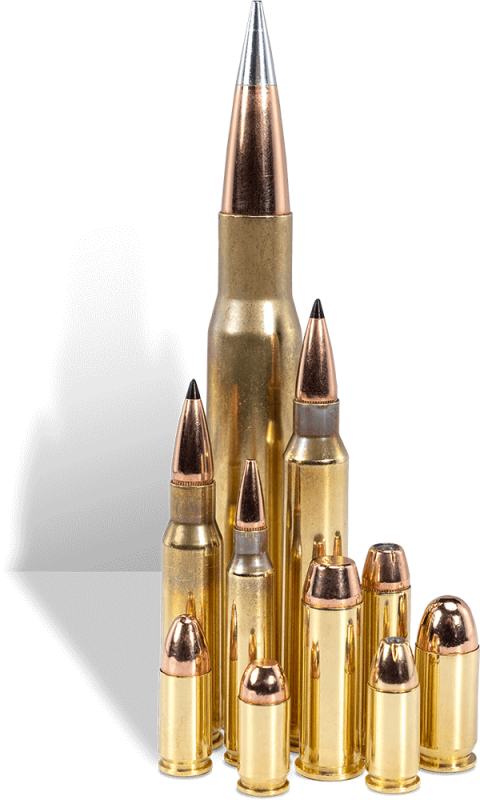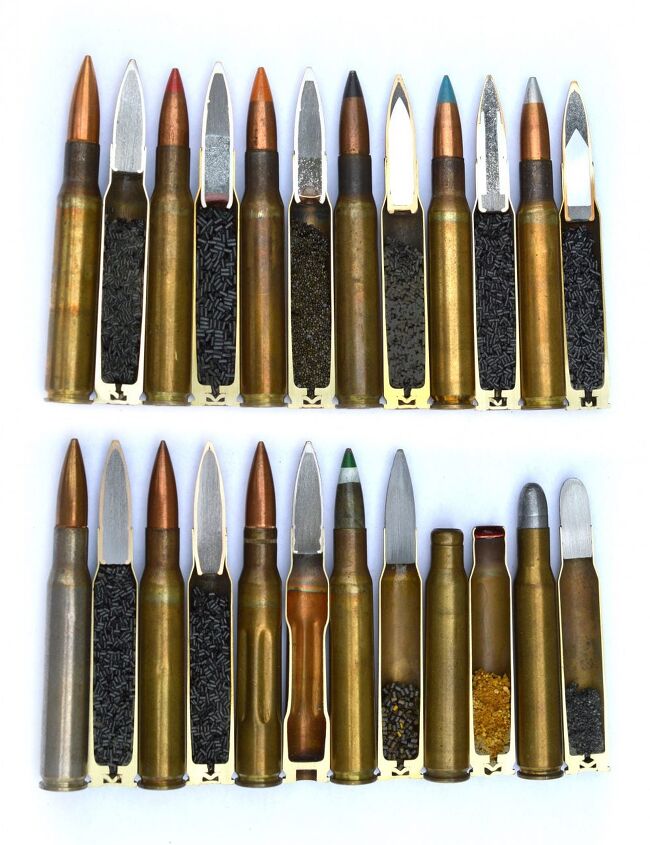Ammunition Pro Llc Things To Know Before You Buy
Ammunition Pro Llc Things To Know Before You Buy
Blog Article
Facts About Ammunition Pro Llc Revealed
Table of ContentsAmmunition Pro Llc for DummiesSee This Report on Ammunition Pro LlcThe Definitive Guide for Ammunition Pro LlcSome Ideas on Ammunition Pro Llc You Need To KnowThe Only Guide for Ammunition Pro Llc
A lot of contemporary cartridges include 4 primary components the situation, primer, propellant, and projectile. A shotgun cartridge, even more typically described as a shell, is composed of five elements the situation, primer, propellant, projectile(s) and heap. Let's consider each component of a round, how it operates, and options that may be readily available: The case is the container, or housing, into which all the other components fit.Technically, the raised usage of steels apart from brass have actually made this vernacular unreliable, however, it continues to be a frequently utilized and approved term. If you will be refilling you should stick with brass, brass alloy or layered brass. Pure first run brass is best; nevertheless, recycled brass can be used too.
Other forms of brass, including alloys or layered variations, can be utilized yet will have a much shorter lifetime. Early guns depended on gunpowder, which is a particular mix of chemicals that burns rapidly and swiftly develops broadening gases as it sheds. Creating the capacity to constrain and control the burning procedure and gas expansion was the vital to developing reputable, and risk-free, guns.
Due to its instability gunpowder has been changed by modern-day chemical substances that accomplish the exact same result without the risk. One of the most usual of these combinations is saltpeter, sulfur, and charcoal. The result is a propellant that burns quick, is trustworthy and more stable. The propellant requires a smaller sized charge to be safely sparking and this is achieved by the guide.
The 25-Second Trick For Ammunition Pro Llc
As holds true with the propellant, gunpowder has actually been replaced by more secure contemporary chemical compounds in the construction of the guide. Quality guides are vital to appropriate, reputable ammunition efficiency. A harmed or wet guide will certainly usually cause failure to fire or a postponed, hang, fire circumstance.
the bulletEvery firearm calls for a things that will be expelled from the weapon which will, consequently, be made use of to hit the intended target. This things is called the projectile, although the terms bullet, slug or shot are typically used in its area. In truth rifles & hand guns fire bullets while shotguns fire slugs or shot, the latter being used to define a group of pellets removed from a single covering or case.
Some makers have actually even trying out including a polymer cone to hollow point styles. The outcome is managed expansion and much deeper penetration. Bullets, which is an appropriate term for the projectile for most contemporary weapons, come in a range of kinds. Each is developed for a various purpose and might or may not cycle appropriately in every gun.

Some Known Details About Ammunition Pro Llc
As discussed previously, the instance is the real estate into which the various other components are housed. In the case of centerfire cartridges (one of the most common sort of contemporary ammunition) the guide is fitted into a pocket in the base of the case, the propellant is loaded into the hollow indoor space and a projectile (also known as bullet) is safeguarded into the open end.
The shooting pin, consequently, moved rapidly ahead and strikes the primer. When struck by the firing pin the guide fires up and virtually instantly sparks the propellant by permitting a flame to go into the cartridge using a little hole behind the guide cap. This results in an immediate chain reaction that develops expanding gases which, due to the constrained space within the instance, cause the projectile to be swiftly gotten rid of.
Obviously, every weapon proprietor has a responsibility to check out the owner's handbook and technique risk-free shooting. Before you understand it, you will be the another concern for details, waiting patiently while you shoot so they can ask "Is it a bullet, ammunition, or cartridge?".
The Ultimate Guide To Ammunition Pro Llc

All are instances of self-supporting ammunition, which has been with us for well over a century. Using these four parts, ammunition is either made by factories or handloaders, and though the make-up and design of the standard parts have advanced and remain to do so, their overall feature and exactly how they work together have not.
Cartridge cases are usually made of brass. (Photo/Richard Mann)The cartridge instance is what holds all self-contained ammunition with each other.
Examine This Report about Ammunition Pro Llc
Brass instances are reloadable, while steel cases are not. With shotgun hulls or coverings, the base is made of brass for toughness, and the remainder of the case is made of plastic for economy.
With most shotgun coverings, additional details regarding the load is published on the plastic section of the hull. Online Ammunition Store. Centerfire guides fit into the cartridge or covering head, and when impacted by the firing pin they develop a stimulate to begin the gunpowder burn. (Photo/Richard Mann)There are 2 kinds of priming methods utilized in modern-day, self-contained ammunition
Report this page